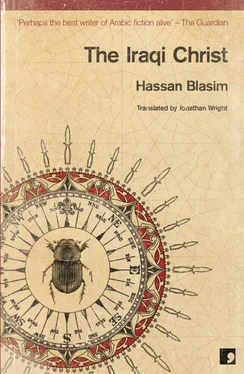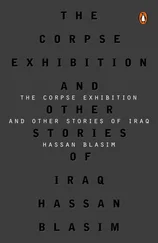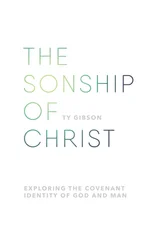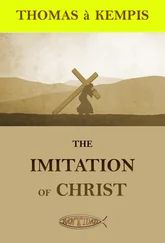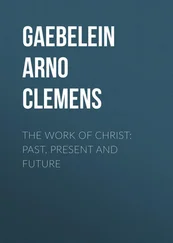‘I want to swim in the River Nabi,’ she said.
The intelligence unit took her to the city. They took care of her and checked all the villages on the banks of the River Nabi until they identified her village, which at the time was named after the river — Nabi village.
The villagers were delighted to see her back. Tears flowed and they embraced her like a spoiled child. But the old woman didn’t recognise them. She treated them as if they were apparitions. For her the river was the only truth. She pointed towards it, then ran like a cheerful little girl and jumped into it. She swam and sang old songs the ancestors had sung hundreds of years ago. The villagers accepted Sarsara’s new status gladly and with love. They left her to strip off, swim in the river, joke and play, and they took care of her food and clothing. But they couldn’t persuade her to live in either her old house or any other house. As soon as she tired of the river she would stroll back towards the cattle pen and sleep there. Only a few days after Sarsara came back the trees started to appear. They were suddenly springing up everywhere from underground. They were strange trees of a kind the villages along the river had never known. Poisonous weed-like trees. The trees sprouted out of the ground, then spread and grew within minutes to a height of more than a hundred feet. They were born dead, without leaves, and their thin branches were entangled like broken cobwebs. Every tree killed the ground for half a mile around it in a circle. The soil turned to rock and no form of life survived. It was a disaster. We didn’t have enough agricultural land to be able to deal with this sudden death of the soil. It wasn’t long before we got to the bottom of it. The old woman Sarsara was the reason why the death trees had appeared. The local people worked together cutting down the trees. We dug up the roots and burned them. We imprisoned the old woman in the cattle pen and had a long discussion on what we should do.
We asked Sarsara to stop this strange magic of hers, because the village was threatened with ruin. But she wasn’t listening. Whenever the old woman was alone and stared at the ground a tree would sprout up. She didn’t understand how serious it was. She was lost in her own world. Sarsara was almost killed when the mud roof of the cattle pen fell in on her. A tree had sprouted and broken through the roof, bringing down the wooden posts. A cow and a young calf were killed.
The villagers felt sorry for Sarsara. The women baked big loaves of bread and put a flower in the middle of every loaf. The boys and girls gave out the loaves to the local people, who prayed to heaven to spare them further misfortunes through the power of the bread and the flowers.
The village elders came up with a suggestion — to blindfold Sarsara with a piece of cloth. The experiment failed. Sarsara’s eyes glowed like burning coals and the piece of cloth didn’t stop trees sprouting. The women wept for her and the boys and girls grew more and more anxious about the state Sarsara was in. We performed the rites and bathed in the river together after midnight. We sang all the poems we could remember about the River Nabi. The young ones decided not to embrace or kiss their fathers until their fathers took the blindfold off Sarsara’s eyes.
We sent word for Hoopoe Marmour, who was wandering in the wilderness in search of himself. Marmour came from the village. He had abandoned us years earlier because of his struggle with God. He thought he was a hoopoe that had changed into a human while sleeping in a crow’s nest by mistake. But a hoopoe that had not followed the path of enmity towards the villagers. He would answer any call for help. From time to time he would check to see how the villagers were because he was a wise man despite his random ravings.
Mr Marmour arrived and the villagers were relieved. Marmour went for a walk around the village side by side with Sarsara and observed her closely. As soon as the first tree sprouted, Mr Marmour said that Sarsara imagined the tree and it sprouted and it was impossible to stop this.
After what Marmour said, the villagers gathered to consult. The women and children also took part in the meeting. The debate went on till the morning. When the first rays of dawn appeared most of the people in the village had agreed to get rid of Sarsara. But the women refused to burn the old woman alive. The children suggested sending her somewhere else with the migratory birds. Marmour had asked the villagers to be patient until he could understand how her imagination worked. The discussions went on three more days until they reached a final decision.
That night we brought torches with heavy hearts. The village was sunk in sadness and fear. We took Sarsara to the hill nearest the village. We left her alone and gave her enough time to look at the ground. Sarsara’s last tree sprouted, to immortalize her memory on the hill. We tied the old woman up, took her to the middle of the river in a boat and abandoned her to the waters of the Nabi.
Sunset had filled the village with a blood-red glow. The teacher advised me to stay the night because the road to the town was dangerous in the dark. He said there were armed gangs at large along the highway. I thanked Shamreen and told him I had to get home. My wife was expecting me and I had things to do early in the morning. I said goodbye to him and walked to the dirt road where I had parked the car. One thing was turning in my head: my wife naked in the shower… I would go in and press myself against her body. I was tired and I felt quite exasperated by Sarsara’s village.
I tried in vain to start the car. I retraced my steps to the teacher’s room to ask for help. I couldn’t find him. I didn’t know which house he lived in. I went to one of the nearby houses. I knocked on the door but no one answered. I pushed the door and started calling out. The house was empty. I headed to another house. The calm around me opened its mouth like a mysterious animal. Finally a young girl with dishevelled hair opened the door. ‘Are you thirsty…? Tonight the foxes are going to bring lots of presents,’ she said, as she took hold of my hand. I asked her where the teacher’s house was and told her I needed help because my car had broken down.
She led me by the hand to the cattle pen nearby. The girl went up to a grey cow and started to milk it into a small container. Then she left the cattle pen without taking any interest in me. I followed her outside into the darkness. The village seemed to be deserted. There was just the chorus of insects gradually growing louder, as though announcing that the night and the devils were descending. The girl was heading towards the dirt road where the car was parked. I followed her, trying to feel my way in the darkness that covered Sarsara’s village like an apocalypse.
The girl plucked a white flower from the side of the dirt road and threw it in the milk container.
‘It’s a windflower and it brings good luck,’ she said, offering me the container. ‘Don’t eat it. Chew it, then put it in a place you’ve forgotten to miss.’
I drank. Then I took out the wet flower and held it between the tips of my fingers. The girl opened the car door, pointed to the seat and then hurried off.
‘Hey girl, what’s your name?’
‘Sarsara,’ she shouted without turning back.
I checked the revolver was still in place under the seat and called my wife. As I spoke I turned the key to see if the car would start. It started immediately.
I noticed a man climbing the hill with a lantern in his hand. He hung the lantern on one of the branches of Sarsara’s tree and sat down next to it. Perhaps it was the teacher. I tasted the petals of the flower with the tip of my tongue, then chewed them warily. It tasted like milk with a slightly bitter sting. I drove off at speed between the ears of corn, listening to a Sufi song about turning in the womb of the one you love.
Читать дальше
